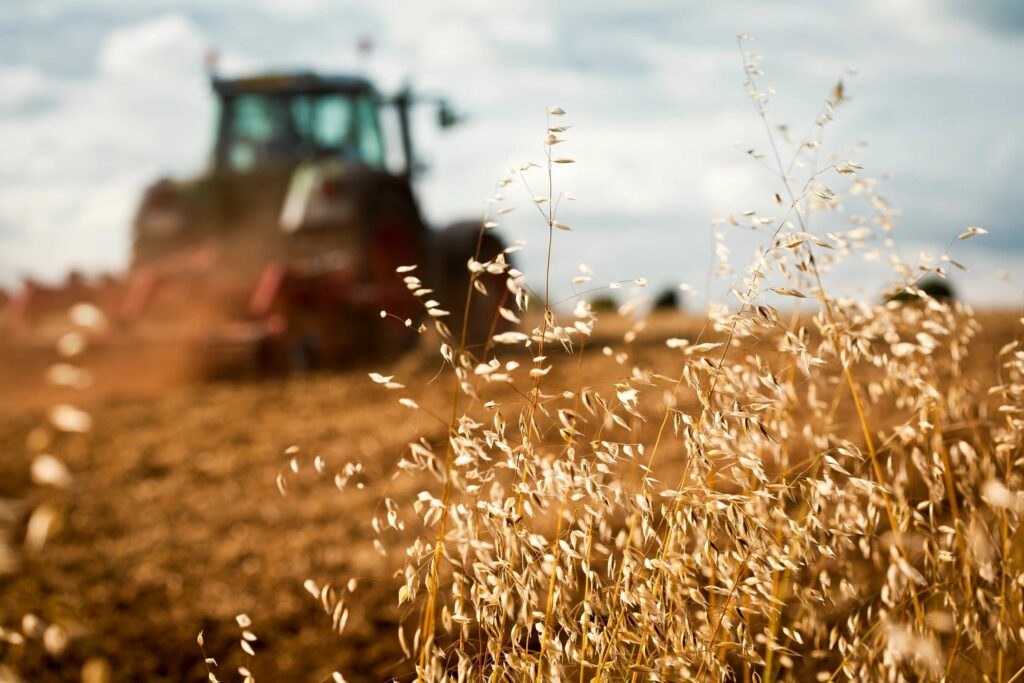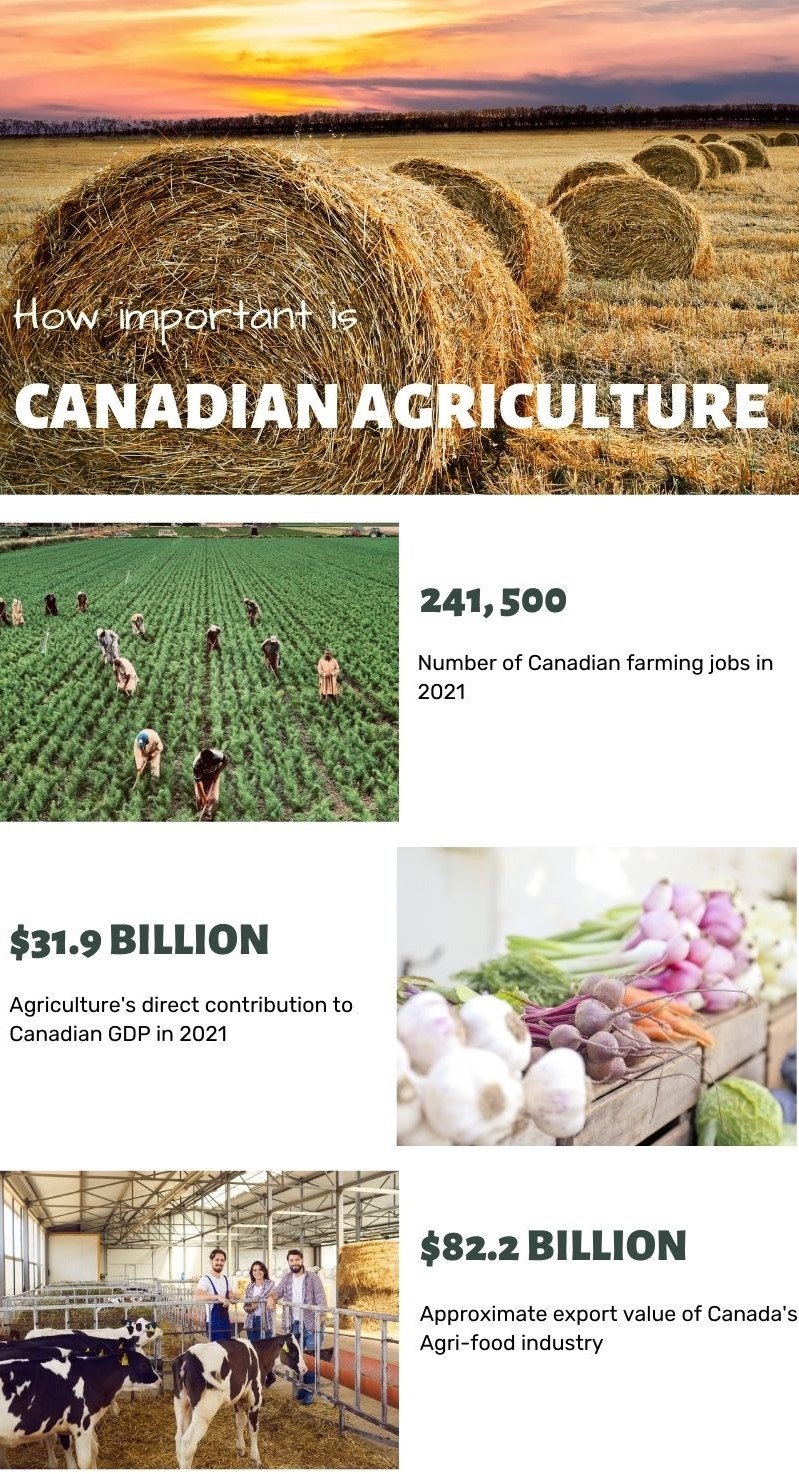
Thanking Canadian Farmers This Canada Day
Canada Day is HERE and the team at YCR wants to send a special shoutout and thank you to the people that fill bellies from sea to sea each and

As a young Canadian who enjoys food and would maybe one day like to operate a farm, the idea that young Canadians may slowly be losing grip of this country’s agriculture industry concerns me.
Labelled as “farmland grabbing” in a 2015 Library of Parliament article, a situation is emerging where locally-owned and operated farms, run by Canadian families or companies, are being rolled into the portfolios of private investment companies or foreign entities. The article goes on to describe how in the last four decades, Canadian farmers are owning less and less of the land they farm, instead being replaced by investment corporations and foreign entities.
I believe this matters, not just to young Canadians like myself, but to all Canadians. There are few more valuable resources than food, and as control over it becomes further removed from the people who need it, we must ask whether the priorities of those new owners will align with what the average Canadian needs.
As one Radio Canada article describes, on a Canada-wide basis, the changing layout and ownership of Canada’s agriculture industry is affecting the health of the communities where they are located. Farms do not operate in isolation, and so their conversion to investment assets, which sometimes involves stopping farming operations, can start a chain reaction of negative consequences for the surrounding community. This is particularly important considering the challenges that rural communities may already face in trying to provide opportunities for their young people, and could even signal the beginning of the end for some areas.
As large-scale farms become more like an investment and a commodity, entering the industry will become harder for young Canadians like myself, who do not have enough money to enter an industry dominated by farms enjoying foreign and large-scale investment backing.
A second national consideration is, given the agriculture industry’s huge financial benefits for Canada, as well as the general importance of controlling where our food comes from, thought must be given to transfers of farm ownership to non-Canadian entities and investment corporations. Those financial benefits include the direct and indirect employment of over two million Canadians and billions of dollars in export values. Turning farmland into a commodity is creating an economic situation where unsustainable practices are being relied on to make enough money to pay for increasing costs.

I am concerned when profit becomes the sole motivator for farming operations, at the expense of food production, given how important food is to our quality of life. Presumably, prioritizing profits over people becomes easier the farther owners are from the communities and country these farms impact. Furthermore, unsustainable practices put at risk the long-term strength of agriculture in Canada and its critical role in Canada’s economic health.
It must be noted that the corporate Canadian farm can be a benefit to Canada and to farmers themselves, as seen in the case of Hebert Grain Ventures, located in Saskatchewan. As one family member put it: “If you run a farm like a lifestyle, it is a really bad business. If you run a farm like a business, it can provide a really great lifestyle.” A broad brush cannot be applied to all corporate farms, as this example shows.
While young Canadians should already have sufficient motivation to care about the issue of farmland ownership given what has already been said, two further points strike even closer to the young heart.
First, there is food affordability, a logical outcome of increased financial pressures on farmers. Young Canadians, who generally are one of the lower-income demographics in Canada, will be particularly hurt by increases in food costs that could emerge from the commodification of farmland.
Secondly, there is growing concern that rising prices of farmland are becoming too large of an obstacle for those of us wanting to enter the agriculture industry, especially young Canadians. As farmland becomes more of a commodity, and new players with large wallets inside and outside Canada enter the industry, the average young Canadian will struggle to compete. This is particularly concerning given that in the next ten years, up to 40% of farmers will be leaving the industry.
A window is emerging, and will eventually close, to ensure that Canada retains control over the country’s farmland in a way that preserves food access and livelihoods for the next generation.
On the bright side, steps are being taken by various provinces to ensure the integrity of their agricultural industry and address the issues of foreign and corporate ownership. One example is Alberta, whose regulations put substantial limits on the amount of land that non-Canadian individuals and corporations can own. In British Columbia, the Agricultural Land Reserve identifies land where farming should be occurring and provides support and regulations to enable this. The National Farmers Union is also serving to advocate for increased protections for farmland to ensure it remains in the hands of Canadians.
Regardless of progress, it is in the best interests of Canadians, especially young Canadians, to advocate for this industry. It is so vital to the health and economic well-being of this country, and it needs to remain in Canadian hands.
Sign up for updates about our work at YCR. Please sign up using a personal email and not a work or school email if possible.
"*" indicates required fields

Canada Day is HERE and the team at YCR wants to send a special shoutout and thank you to the people that fill bellies from sea to sea each and

The complexity of food systems goes beyond our imagination, impacting Canadians’ lives. This not only includes how food is produced and consumed but also how it is discarded.

I’m sure you’ve heard about the growing interest in eating locally; but, do you know why? It is important to acknowledge the positive impact eating locally has beyond just being